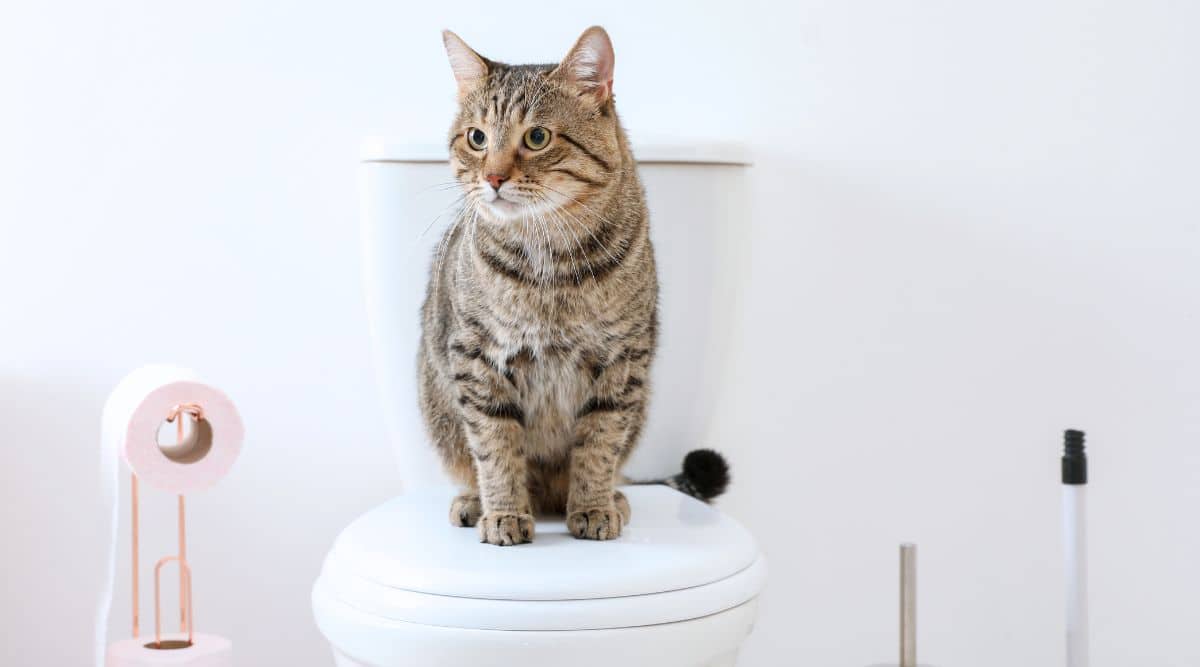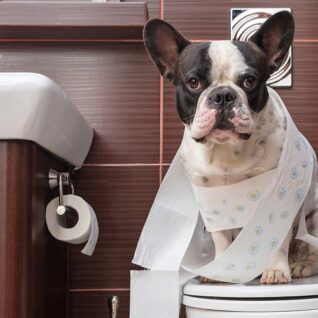Our Significance of Not Emptying Animal Waste Down the Toilet
Our Significance of Not Emptying Animal Waste Down the Toilet
Blog Article
Just how do you actually feel in regards to Should you flush animal waste down the toilet?

When it concerns taking care of waste, particularly animal waste, many people usually resort to the practical alternative of flushing it down the toilet. Nevertheless, this apparently very easy service can have severe effects for the setting and public health. In this write-up, we'll check out why flushing pet waste down the commode is a negative concept and give different approaches for correct disposal.
Intro
Appropriate waste disposal is crucial for keeping ecological sustainability and public health. While it might seem harmless to purge animal waste down the bathroom, it can result in various concerns, both for the setting and human wellness.
Dangers of flushing pet waste
Environmental influence
Flushing pet waste presents damaging microorganisms and pathogens right into rivers, which can negatively affect marine communities. These virus can infect water resources and injury marine life, disrupting delicate ecological communities.
Public health problems
Pet waste has unsafe bacteria such as E. coli and Salmonella, which can pose serious health risks to humans. Purging pet waste down the commode can contaminate water products, bring about the spread of illness and infections.
Alternatives to flushing
Instead of purging animal waste down the bathroom, there are numerous alternative disposal approaches that are much more environmentally friendly and hygienic.
Composting
Composting pet waste is a green way to take care of it. By composting, organic matter is broken down into nutrient-rich dirt, which can be made use of to feed gardens and plants.
Landfill disposal
Throwing away pet waste in a landfill is an additional alternative. While not as environmentally friendly as composting, it is a more secure option to flushing, as it prevents the contamination of water sources.
Pet dog waste disposal systems
There are customized animal garbage disposal systems available that securely and hygienically deal with pet waste. These systems often utilize enzymes to break down waste and remove smells.
Actions to proper animal waste disposal
To make certain proper disposal of animal waste, follow these steps:
Scooping and getting waste
Routinely scoop and bag animal waste making use of biodegradable bags. This prevents waste from contaminating the environment.
Using designated waste bins
Dispose of bagged animal waste in marked waste containers, such as compost containers or land fill containers. Prevent flushing it down the toilet whatsoever costs.
Cleansing can check here and family pet areas regularly
Consistently tidy litter boxes and pet dog areas to prevent the build-up of waste and bacteria. Usage pet-safe cleaning products to maintain health.
Benefits of appropriate disposal methods
Taking on appropriate disposal methods for animal waste offers a number of advantages:
Reduced environmental pollution
Proper disposal methods reduce the threat of environmental pollution, shielding rivers and communities from contamination
Minimized risk of water contamination.
By staying clear of flushing animal waste down the commode, the threat of water contamination is considerably minimized, guarding public health.
Boosted cleanliness and health
Correct disposal approaches advertise much better cleanliness and hygiene, producing a much safer environment for both humans and animals.
Final thought
In conclusion, flushing pet waste down the bathroom is dangerous to the atmosphere and public health. By adopting alternative disposal approaches and complying with proper waste management techniques, we can reduce the negative influence of animal waste and add to a cleaner, healthier earth.
What To Do With Dog Poo – The Do's And Don'ts Of Disposing Of Faeces
Dog poo bins
Some councils provide dedicated dog waste bins in popular dog-walking areas that can take dog poo that has been bagged but you can legally dispose of dog waste in any public litter bin, as long as it is securely bagged. This also applies to your wheelie bin at home.
Do not flush
Water companies do not recommend flushing dog faeces down the toilet because certain parasites can survive the water processing treatment and are potentially harmful to humans. You should also never consider flushing dog poo that has been bagged down the toilet as the bags will not break down and instead create severe blockages in the sewage system.
In the woods
The Forestry Commission promotes a ‘stick and flick’ method for dealing with waste in the woods. This means finding a stick and using it to flick any poo from off the path so that it is out of the way of other walkers. You could also bury it as long as it is not in an area where there might be livestock.
Livestock
Parasites found in dog poo can be transmitted to livestock if they inadvertently eat infected faeces that has been left on grazing land. This could result in the death of sheep or abortion in cattle so you should always make sure you pick up your dog’s waste in fields where livestock could be present.

Consistently tidy litter boxes and pet dog areas to prevent the build-up of waste and bacteria. Usage pet-safe cleaning products to maintain health.
Benefits of appropriate disposal methods
Taking on appropriate disposal methods for animal waste offers a number of advantages:
Reduced environmental pollution
Proper disposal methods reduce the threat of environmental pollution, shielding rivers and communities from contamination
Minimized risk of water contamination.
By staying clear of flushing animal waste down the commode, the threat of water contamination is considerably minimized, guarding public health.
Boosted cleanliness and health
Correct disposal approaches advertise much better cleanliness and hygiene, producing a much safer environment for both humans and animals.
Final thought
In conclusion, flushing pet waste down the bathroom is dangerous to the atmosphere and public health. By adopting alternative disposal approaches and complying with proper waste management techniques, we can reduce the negative influence of animal waste and add to a cleaner, healthier earth.
What To Do With Dog Poo – The Do's And Don'ts Of Disposing Of Faeces
Dog poo bins
Some councils provide dedicated dog waste bins in popular dog-walking areas that can take dog poo that has been bagged but you can legally dispose of dog waste in any public litter bin, as long as it is securely bagged. This also applies to your wheelie bin at home.
Do not flush
Water companies do not recommend flushing dog faeces down the toilet because certain parasites can survive the water processing treatment and are potentially harmful to humans. You should also never consider flushing dog poo that has been bagged down the toilet as the bags will not break down and instead create severe blockages in the sewage system.
In the woods
The Forestry Commission promotes a ‘stick and flick’ method for dealing with waste in the woods. This means finding a stick and using it to flick any poo from off the path so that it is out of the way of other walkers. You could also bury it as long as it is not in an area where there might be livestock.
Livestock
Parasites found in dog poo can be transmitted to livestock if they inadvertently eat infected faeces that has been left on grazing land. This could result in the death of sheep or abortion in cattle so you should always make sure you pick up your dog’s waste in fields where livestock could be present.

I'm just very curious about Why you should never flush dog poop down the toilet and I really hope you enjoyed reading the page. Sharing is caring. One never knows, you could be doing someone a favor. Thank you for taking the time to read it.
Call Report this page